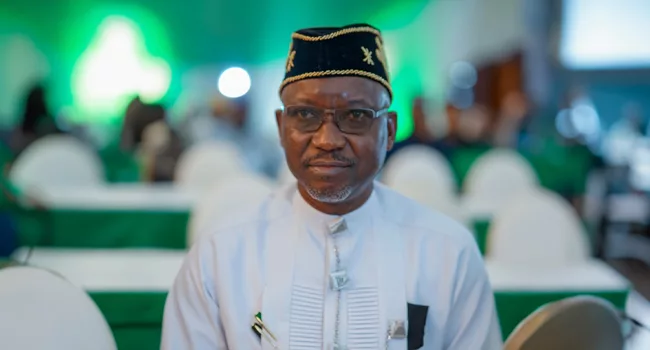Nigeria is planning to meet key investors in the energy sector with specifically brandishing the government’s gas development blueprint.
Already, the Minister of State for Petroleum Resources (Gas), Ekperikpe Ekpo, is scheduled to speak and dwell on this at the Invest In African Energy, IAE, on May 14-15.
Connecting with global investors in Paris, Ekpo will outline investment opportunities in Nigeria’s gas sector, drawing attention to exploration prospects and infrastructure requirements.
Nigeria aims to increase gas production to 5.5 billion cubic feet (bcf) per day by 2030, and launched a Decade of Gas initiative in 2021 to achieve this goal.
The country holds the largest proven natural gas reserves in Africa, measured at over 200 trillion cubic feet (tcf) of which 139 tcf is recoverable.
With much of these resources largely undeveloped and the government placing gas as a priority resource for industrialization, Nigeria offers a wealth of opportunities for project developers across the gas value chain.
The IAE 2024 is an exclusive forum designed to facilitate investment between African energy markets and global investors. Taking place May 14-15, 2024 in Paris, the event offers delegates two days of intensive engagement with industry experts, project developers, investors and policymakers.
To stimulate investment in deepwater gas fields, Nigeria is planning to launch a 2024 licensing round.
The country has also issued a call for upstream investments, with several commitments already being made.
Energy major Shell has announced plans to invest up to $1 billion over the next ten years to develop Nigerian gas while multinational Chevron plans to invest in seismic data acquisition in several deepwater blocks.
The American company also intends to expand its Agbami field project and has partnered with supermajor TotalEnergies on OPL 215.
On the production side, TotalEnergies kickstarted operations at the Akpo West field in February 2024, increasing output at the field by 14,000 barrels of condensate per day. The project is expected to produce an additional four million cubic meters of gas by 2028.
The country also expects FID to be made for its first FLNG facility in Q1, 2024, with a shareholders agreement signed in December 2023 for the development of the 1.8 billion tons per annum project. To meet 2030 production targets, new investment is needed in upstream gas.
Downstream, Shell made FID for the construction of a gas supply facility earlier this month. The project will deliver feedstock for the Dangote Fertilizer and Petrochemical plant for a period of ten years, supplying up to 100 million standard cubic feet of gas per day. Efforts to advance pipeline infrastructure to support industry growth, power generation and regional distribution are also showing positive results.
The Ajaokuta-Kaduna-Kano pipeline – a two billion cubic feet per day (bcm/d) project – is expected to be completed by mid-2024 while a meeting was held in January 2024 to expedite the development of the 3.3 bcm/d Nigeria-Morocco pipeline project.
Additionally, construction of a seventh train at the country’s inaugural LNG project – Nigeria LNG (NLNG) – is also underway, with the project reaching 52 per cent completion as of November 2023.
NLNG has been exporting LNG to international markets for over 20 years, and the addition of a new train will increase production by 7.6 million tons per annum.
The is a testament to the potential for large-scale project developments in the country, yet additional investments are required to bring the plant to its full capacity, highlighting lucrative opportunities for foreign firms. Further insight will be provided during the IAE 2024 forum.











